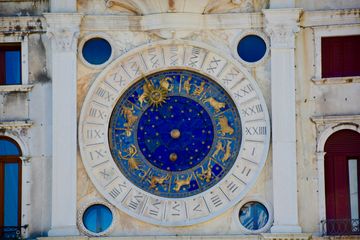
Staring into the void, one finds the void staring back, indifferent to your existence.
At the heart of nihilism is not despair, but the liberation of meaninglessness.
Without purpose, we are just cosmic dust dancing to the tune of time.
Nihilism whispers the uncomfortable truth that values are but a human construct in an indifferent universe.
The universe owes us no explanation; our search for meaning is a solo venture.
In the grand tapestry of existence, nihilism is the thread that questions the very fabric of being.
Life's inherent lack of meaning can be a canvas, not a prison, free for us to paint with the colors of our choices.
If nothing ultimately matters, then every moment is the most important, precisely because it's fleeting.
Nihilism is the silent pause between the notes of existence, questioning the melody of life itself.
When you realize there's no grand score to life, you're free to compose your own opus.
Belief in nothing is still a belief, teetering on the edge of the infinite.
Amidst life's noise, nihilism is the echo that asks, "Why even sound at all?"
We are temporary arrangements of atoms, pondering our own impermanence in a self-aware void.
Wrestling with nihilism is to embrace the freedom and terror of absolute responsibility.
From nothingness, we emerge, and to nothingness, we return—a fleeting dance in the dark.
Nihilism is the realization that the universe's script has no author and no promised conclusion.
When you peer long enough into the abyss of meaninglessness, even the abyss seems less profound.
Every belief is a torch in the void; nihilism is the wind questioning why we bother to ignite them.
Nihilism challenges us to create our purpose or embrace the serenity of aimlessness.
Life without meaning is not a curse but an invitation to author our destinies.
True freedom begins where the quest for inherent meaning ends.
As constellations of conscious matter, we self-reflect, only to realize the mirror is but an illusion.
Acknowledging life's absurdity can be an elixir, freeing us from the intoxication of false permanence.
In the empty hand of nihilism lies the potential to hold any truth we dare to grasp.
Nihilism doesn't extinguish the light of existence; it just reveals there's no lantern to hold it.
The greatest freedom may be in acknowledging that all is fleeting; thus, we must cherish the ephemeral.
To the nihilist, the universe is not a puzzle to be solved, but an endless space to be traversed without a map.
To find comfort in nothingness is to accept the cosmic joke that we are its punchline.
Embrace the void as you might a silent friend—it offers no answers, but in its presence, you may find your own.
Nihilism is not just the death of meaning, but the birthplace of personal, unfettered creation.
In the absence of fate, nihilism hands you the quill to script your own existence.
Let us dance to the rhythm of a universe that cares not for steps, choreography, or applause.
Understanding that life is not a story looping towards a climax makes every chapter ours to write.
Nihilism liberates us from the burden of legacy, granting us the simplicity of oblivion.
While nihilism proclaims there are no cosmic answers, it doesn't quiet the human questions.
To live in the wake of nihilism is to sail on an endless sea, with no horizon but the one we imagine.
Existence is merely a brief defiance of nothingness, an artful dodge in the cosmic dance.
Nihilism is the solemn nod we give to the universe's indifference, and yet we live on, rebelliously.
We build monuments, knowing they will crumble, and that is the solemn beauty of nihilism.
Perhaps the silent wisdom of nihilism is that in purposelessness, we are all united.
When nothing matters, everything can – the paradox that fuels the nihilistic heart.
If life is without grand design, then we are the architects of small moments that shape our worlds.
Maybe in the end, nihilism isn't a philosophy; it's a starting point for countless stories yet unwritten.
In the blank stare of the cosmos, we find our reflection—unique and meaningless.
Nihilism is but a dark canvas, inviting the bold to create their light.
With no celestial scorekeeper, our moral choices reflect the purity of our will.
To the nihilist, every act is a sculpture in the sand, knowing the tide will claim it yet still finding joy in creation.
In a universe without inherent purpose, our very search for it becomes a poignant act of defiance.
Those who dance with nihilism understand that the music may stop, but the dance is eternal.
Nihilism is the weightless drift through time, where moments are merely drops in an infinite, unfathomable ocean.
If there is no assigned meaning to our lives, our choices become the verses of a poem without end or beginning.
The embrace of nihilism is to look upon creation and demolition with the same unflinching gaze.
To realize that meaning is a human invention is to become the inventor of your own purpose.
Amidst the grand indifference of the cosmos, our personal passions burn even brighter.
It is in the quiet contemplation of nothingness that we construct the something of our lives.
When faced with the void, some see despair, and others see the boundless landscape of endless possibility.
To accept the void is not to surrender, but to challenge oneself to fill it with existence.
Perhaps the universe's silence is its greatest lesson in humility and the futility of meaning.
As children of the void, it is our first cry that defies the silence of oblivion.
Nihilism is the cold breeze that snuffs out the candles of dogma, leaving us in the clear light of the stars.
In the eyes of eternity, our significance fades, yet it is that very insignificance that makes us cherish life's fleeting beauty.
Nihilism's invitation is to view existence not through the lens of purpose, but through the sheer experience of being.
Anchored in nothing, we are free to chart any course, to find any harbor, or to sail without end.
In existential solitude, nihilism is the quiet voice that asks, "What will you do with your fleeting moment in the sun?"
To the nihilist, legacy is but a word for stories told in a world we no longer inhabit.
Meaning is the mirage we chase across the desert of existence, ever elusive, yet compelling us forward.
If our existence is a brief spark in the infinite night, let us illuminate it with the fire of our own creation.
Nihilism does not argue that life is worthless but suggests that its worth is ours to define.
We do not float adrift in the absence of meaning; we fly unburdened by the gravity of predestination.
Mortality, under the lens of nihilism, is not a ticking clock but a canvas running out of space.
In the grand indifference of the cosmos, the rarity of consciousness sparkles even without a purpose.
The great irony of nihilism is that the recognition of life's futility can be its greatest motivator.
Rejecting intrinsic worth doesn’t strip away value; it empowers us to bestow it where we see fit.
The chill of existential dread is but the shadow of a sun that we alone are tasked to light.
Confronting the void without flinching is the first step in crafting a mosaic from the shards of discarded certainties.
Every act of creation is a rebellion against the slow march toward entropy and nothingness.
The question is not why we exist but what we will do with the existence we are dealt.
From the basis of nothing, every little thing we do is a radical act of creation.
Against the canvas of oblivion, our lives are the brushstrokes of countless fleeting masterpieces.
The silent universe is not a curse, but the quiet necessary for us to write our own anthems of existence.
In a universe that doesn't cater to narrative, we are free to craft our own in splendid isolation.
The magnitude of the cosmos renders us trivial, yet it is within this triviality that we find the profound freedom to be.
Life is the art of drawing without an eraser and nihilism is knowing that the picture will fade regardless.
Nihilism doesn’t spill ink over the pages of existence—it offers a blank page for new stories.
The expanse of meaninglessness is not a chasm to fall into, but a sky in which to soar unshackled by certainty.
Nihilism reminds us that the stars do not wish, the wind does not mourn, and the sea does not dream, but we do.
Perhaps in accepting that we are nothing, we are finally free to become anything.
We are but whispers in the void, and there is a strange harmony in our fleeting echoes.
The intrinsic emptiness of existence does not drown us; it is the water in which we learn to swim.
The gaze of nihilism is neither cruel nor kind; it simply does not blink at the absurdity of our seriousness.
We are the children of stardust and to stardust we shall return—this cosmic cycle mocks our search for lasting significance.
Nihilism isn't the end of the road; it's the wilderness where all roads disappear, inviting brave paths to be trodden.




